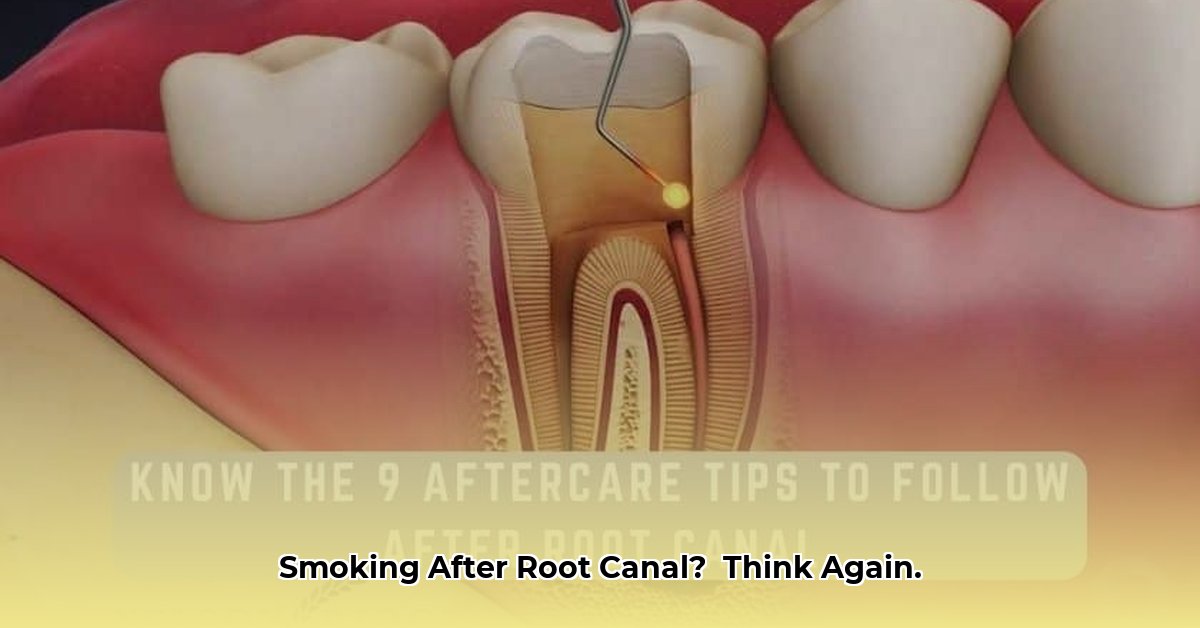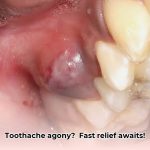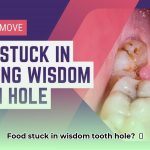No, smoking is strongly discouraged after a root canal.
Why Avoid Smoking?
Smoking significantly hinders healing after a root canal. Cigarette smoke contains numerous chemicals, including nicotine, that negatively impact your body’s natural ability to repair itself. Here’s why:
- Constricted Blood Vessels: Nicotine restricts blood flow, depriving the treated area of essential oxygen and nutrients needed for healing. This can prolong recovery and increase discomfort.
- Weakened Immune System: Smoking compromises your immune system, making you more susceptible to infection. After a root canal, your mouth is already vulnerable, and an infection can lead to serious complications.
- Increased Risk of Dry Socket: Smoking can dislodge the blood clot that forms at the root canal site, leading to dry socket. This painful condition exposes the underlying bone and nerves, causing intense pain, bad breath, and a foul taste.
- Slower Healing: The chemicals in smoke interfere with tissue regeneration, delaying the overall healing process and prolonging your recovery time.
When is it Safe to Smoke Again?
While the absolute minimum is 72 hours, dentists strongly recommend waiting at least a full week. However, quitting smoking entirely remains the best option for your long-term oral and overall health.
Promoting Healing & Alternatives to Smoking
Focus on supporting your body’s natural healing process:
- Gentle Oral Hygiene: Brush and floss carefully around the treated area to avoid irritation.
- Nutritious Diet: Consume plenty of fruits, vegetables, lean proteins, and whole grains to provide your body with the nutrients it needs for optimal healing.
- Pain Management: Use over-the-counter pain relievers like ibuprofen or acetaminophen as directed to manage discomfort. Consult your dentist if pain persists or worsens.
- Hydration: Drink plenty of water to help flush out toxins and promote tissue hydration.
- Quitting Resources: If you’re ready to quit smoking, numerous resources are available. Talk to your dentist or doctor, or explore online resources and support groups. Nicotine replacement therapy (patches, gum, lozenges) can help manage cravings.
Visual Guide: Smoking’s Impact on Root Canal Recovery
(Insert infographic here depicting the effects of smoking on blood vessels, immune response, and the healing process. Visuals could include a comparison of healthy vs. smoke-affected tissues.)
Smoking and Long-Term Oral Health
Smoking significantly increases the risk of:
- Gum Disease: Smoking weakens gum tissue, making it more susceptible to infection and inflammation.
- Tooth Decay: The chemicals in cigarette smoke can damage tooth enamel, increasing the risk of cavities.
- Oral Cancer: Smoking is a leading cause of oral cancer.
Ongoing Research
While the negative impact of smoking on oral health is well-established, research continues to explore the specific mechanisms involved and the long-term effects. Some studies are investigating the impact of smoking on the success of dental implants and other procedures. It’s important to stay informed and discuss any concerns with your dentist.
Disclaimer
This information is for educational purposes only and does not constitute medical advice. Consult your dentist for personalized guidance and treatment recommendations. It’s important to have open communication with your dental professional and to address any questions or concerns you may have. Individual healing times and responses to treatment can vary. While the information provided here reflects current understanding, research in dentistry is ongoing, and future discoveries may refine our understanding of the relationship between smoking and oral health.
- Best Mindfulness Books for Anxiety, Sleep, and Daily Peace - January 29, 2026
- Books On Mindfulness For A Happier, More Present Life - January 28, 2026
- Essential Meditation Books for Beginners and Experienced Practitioners - January 27, 2026
















